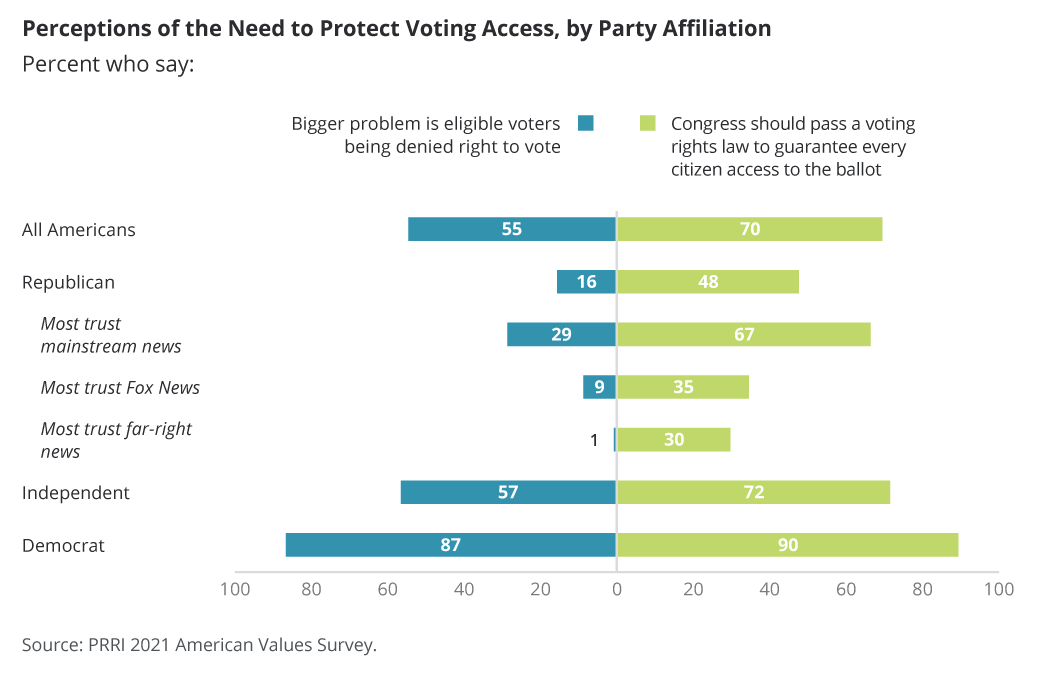In the wake of disproven allegations of voting fraud in the 2020 election and subsequent efforts to restrict voting access across the country, PRRI included questions about elections and voting in its fall 2021 American Values Survey. As the nation prepares to observe the anniversary of the January 6 insurrection at the U.S. Capitol by supporters of former President Donald Trump, the findings illustrate that, although partisanship and far-right news consumption continues to play a major role in shaping views, a large majority of Americans support a federal voting-rights law.
Majority More Concerned About Voter Suppression Than Fraud
When asked to choose the bigger of two problems, “people casting votes who are not eligible” or “eligible voters being denied the right to vote,” a majority (55%) say they are more worried about eligible voters being denied their right to vote, and 42% say the bigger problem is ineligible people casting votes.
Partisanship is strongly correlated with Americans’ perceptions of which problem is bigger in elections. Eight in ten Republicans (83%), compared to just 12% of Democrats, say the bigger problem is people casting ballots who aren’t eligible. Only 16% of Republicans say the bigger problem is eligible voters being denied the right to vote, compared to 87% of Democrats. Four in ten independents (41%) say the bigger problem is people casting votes who are not eligible, with six in ten (57%) saying the bigger issue is eligible voters being denied the right to vote.
Large majorities of Republicans who trust far-right media and Fox News say people casting votes without being eligible is a bigger problem than eligible voters being denied the right to vote (99% and 89%, respectively). Seven in ten Republicans who trust mainstream TV news sources (70%) hold the same view.

Widespread Support for Federal Voting Rights Action
When faced with the choice between whether Congress should pass a voting rights law to guarantee every citizen access to the ballot or whether voting rights decisions should be left to the states, seven in ten Americans (70%) say Congress should pass a voting rights law. Three in ten (27%) say that voting rights should be left to the states.
About half of Republicans (48%), seven in ten independents (72%), and nine in ten Democrats (90%) think Congress should pass voting rights legislation. Only about one-third of Republicans who most trust Fox News (35%) or far-right media (30%) say Congress should pass a voting rights law rather than leave voting to the states. By contrast, two-thirds (67%) of Republicans who trust mainstream news favor federal voting rights protections.
Across racial and ethnic groups, majorities of Americans support Congress passing a voting rights law. Nearly two-thirds of white Americans (65%), seven in ten Hispanic Americans (73%), three-quarters of multiracial Americans (75%), eight in ten Americans of another race (80%), and nearly nine in ten Black Americans (88%) support federal voting rights legislation.